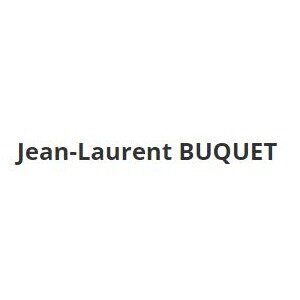Best Real Estate Due Diligence Lawyers in France
Share your needs with us, get contacted by law firms.
Free. Takes 2 min.
Free Guide to Hiring a Real Estate Lawyer
Or refine your search by selecting a city:
List of the best lawyers in France
About Real Estate Due Diligence Law in France
Real Estate Due Diligence in France is a comprehensive evaluation process that prospective buyers, investors, or lenders undertake to assess the risks and benefits associated with a real estate transaction. This involves a detailed examination of legal, financial, and physical aspects of the property, ensuring compliance with local regulations and identifying potential issues that could affect the property’s value or use. The due diligence process aims to provide reassurance and transparency for all parties involved, allowing informed decision-making.
Why You May Need a Lawyer
Engaging a lawyer for Real Estate Due Diligence in France can be essential in several situations:
- When purchasing or investing in complex properties such as commercial buildings, large residential buildings, or historic properties which require thorough analysis.
- If the transaction involves cross-border elements, a lawyer can help navigate international legal considerations and currency regulations.
- In situations where there are concerns about legal compliance concerning zoning laws, environmental laws, or historic preservation status that could affect property use.
- For negotiating terms of purchase agreements and ensuring all contractual obligations are clearly defined and understood.
- If there are disputes or litigation risks regarding property boundaries, ownership rights, or other legal encumbrances.
Local Laws Overview
France has a unique set of real estate laws that are crucial for due diligence, including:
- Ownership Structure: Properties can be owned individually, jointly, or through legal entities like SCI (Société Civile Immobilière).
- Zoning Regulations: Local zoning laws dictate the use and development potential of land. Understanding these is vital for any development plans.
- Taxes and Fees: Real estate transactions in France incur various taxes such as transfer taxes, VAT, and notary fees. These should be factored into the transaction's cost analysis.
- Environmental Laws: Especially relevant in rural or industrial areas, these laws may mandate assessments for pollution or habitat protection affecting the property use.
- Lease Agreements: For investment properties, an understanding of existing lease agreements and tenant rights is necessary.
Frequently Asked Questions
1. What is the purpose of due diligence in real estate?
The purpose of due diligence is to evaluate all aspects of a property transaction to understand the investment’s risks and assure compliance with legal and financial obligations.
2. How long does the due diligence process take in France?
The due diligence process can vary significantly depending on the complexity of the transaction but typically ranges from 30 to 90 days.
3. What documents are typically reviewed during due diligence?
Key documents include title deeds, zoning certificates, environmental reports, lease agreements, building permits, and financial statements.
4. Can I withdraw from a purchase if due diligence reveals issues?
Yes, withdrawal is possible, especially if there are significant undisclosed issues or if contingency clauses are included in the purchase agreement.
5. What is the role of a notary in French real estate transactions?
In France, notaries are legal professionals who authenticate the sale, ensure compliance with tax laws, and register the deed with the Land Registry.
6. Are pre-purchase inspections mandatory in France?
For certain transactions, inspections such as energy performance assessments and lead or asbestos testing are mandatory to inform buyers about the property’s condition.
7. How are disputes during due diligence addressed?
Disputes can be addressed through negotiation, mediation, or, if necessary, legal action governed by French law.
8. What legal protections do buyers have in France?
Buyers are protected by laws that require full disclosure from the seller and the legal obligation of the notary to ensure all aspects of the sale are compliant with current laws.
9. Is financing available for foreign buyers?
Yes, financing options are available, although terms and conditions may vary between institutions. It's advisable to consult both French and home-country banks.
10. How is due diligence conducted for off-plan properties?
For off-plan purchases, due diligence involves reviewing the developer's credentials, plans, permits, and the financial arrangement of contracts such as VEFA (Vente en l'État Futur d'Achèvement).
Additional Resources
For more information and assistance, consider consulting the following resources:
- Chambre des Notaires de France: Provides guidance and listings of French notaries.
- Ministry of Ecological Transition: Offers resources on environmental laws and regulations affecting real estate.
- Local Municipal Offices: Can provide zoning and city planning information.
- Professional Associations: such as FNAIM (National Real Estate Federation) can offer insights into market trends and regulations.
Next Steps
If you require legal assistance in Real Estate Due Diligence in France, consider the following steps:
- Identify Legal Needs: Clearly define the type of legal assistance required based on the property and transaction complexity.
- Consult Professionals: Engage with a specialized real estate lawyer or a notary who has experience with transactions in the French market.
- Gather Documentation: Assemble all necessary documents and information related to the real estate in question.
- Schedule a Consultation: Set up meetings to discuss findings and strategies with legal professionals.
- Review Services: Ensure the chosen professional can provide comprehensive support tailored to your needs, including negotiation, documentation review, and compliance checks.
Lawzana helps you find the best lawyers and law firms in France through a curated and pre-screened list of qualified legal professionals. Our platform offers rankings and detailed profiles of attorneys and law firms, allowing you to compare based on practice areas, including Real Estate Due Diligence, experience, and client feedback.
Each profile includes a description of the firm's areas of practice, client reviews, team members and partners, year of establishment, spoken languages, office locations, contact information, social media presence, and any published articles or resources. Most firms on our platform speak English and are experienced in both local and international legal matters.
Get a quote from top-rated law firms in France — quickly, securely, and without unnecessary hassle.
Disclaimer:
The information provided on this page is for general informational purposes only and does not constitute legal advice. While we strive to ensure the accuracy and relevance of the content, legal information may change over time, and interpretations of the law can vary. You should always consult with a qualified legal professional for advice specific to your situation.
We disclaim all liability for actions taken or not taken based on the content of this page. If you believe any information is incorrect or outdated, please contact us, and we will review and update it where appropriate.
Browse real estate due diligence law firms by city in France
Refine your search by selecting a city.
















